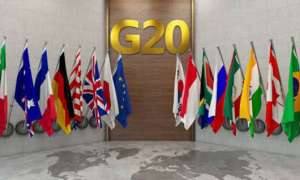
New Delhi
The New Delhi Declaration aims to accelerate progress on the Sustainable Development Goals (SDGs), focusing on eliminating hunger and malnutrition, food and energy insecurity, strengthening global health, integrating finance and health, providing quality education, and using culture as a catalyst. The declaration notes that global progress on the SDGs stands at just 12% by 2030 and emphasizes the need for the G-20 to meet these targets in a timely manner.
The declaration also addresses the challenges posed to long-term development due to global economic crises, emphasizing the need for monetary, fiscal, and structural policies to reduce inequalities and achieve economic and financial stability. The central banks of G-20 countries will focus on price stability to control inflation and partner with the private sector to build inclusive, sustainable, and resilient global value chains.
The declaration commits to a fair, sustainable international tax system fit for the 21st century, working under the Multilateral Convention (MLC). Work on the development of the Subject to Tax Rule (STTR) will be completed, and steps to implement Global Anti-Base Erosion (GLOBE) regulations will be welcomed. The Crypto Asset Reporting Framework will be implemented by 2027, along with an amended CRS.
The declaration aims to pursue integrated, balanced, inclusive economic growth without harming the environment, accelerating efforts to curb environmental crises and climate change. It supports gender equality, women’s roles, and partnership in the environmental policy framework. The leaders of the group emphasize international collaboration and further consideration of artificial intelligence (AI) for better services and inclusive digital public infrastructure (DPI).
Innovation and employment will be promoted through MSMEs in developing countries, with the Startup-20 Engagement Group helping to support this. The declaration supports a rules-based, non-discriminatory, fair, open, inclusive, equitable, sustainable, and transparent trading system, with the WTO remaining an indispensable part of the core. Global Value Chains have been agreed upon as a generic framework for supply chains to help G20 members understand and build resilience to supply chain risks.
Three new principles have been put forward against corruption, including strengthening law enforcement cooperation and information sharing, asset recovery mechanisms, and promoting the integrity and effectiveness of public bodies and authorities responsible for preventing and combating corruption. All forms of terrorism are described as the biggest threat to international peace and security, and everyone must come together to effectively increase international cooperation to isolate those who harbour terrorism and stop those promoting terrorist funding and recruitment.






